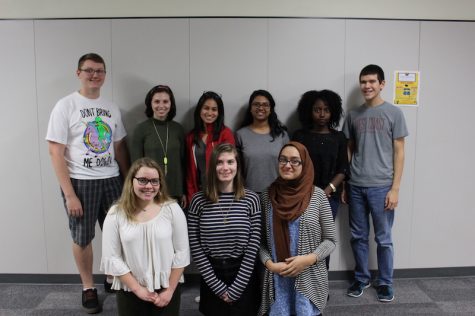Artificial racial diversity creates more division, not less (with video)
November 9, 2016
Suppose there are two groups posed to you, and you have to decide which group seems more diverse: a group filled with an Asian, Mexican, black person and a white person, or a group filled with only white people. Which one are you going to choose knowing only this information?
It is only natural that we are all going to assume that the first group is more diverse. But, do we ever ask ourselves why?
Our generation has grown up believing that someone’s skin color is something to be honored, valued and revered. Race is meant to be something that we all have to be open to and willing to talk about.
Discussing race is supposed to be one of the signs of progress our society has made. But I am not sure this is the case. If we wanted to truly reduce racism in our society, why is everything discussed along racial lines?
Affirmative action, hiring quotas and the like seem to make it impossible to not see someone for their race. Racism has been a major issue, and since it was once so seriously ingrained in our government’s codes, these programs may have been a necessary step to take. But even with good intentions, these decisions have created unintended consequences. It is time to rid ourselves of these programs and start afresh. However, it seems impossible given the current state of our culture.
Many of us are applying to college or will be in a few years. One would assume that our grades, extracurriculars and unique skills would be the only criterion we are judged on. However, at a place like Princeton, this may not be the case. African-Americans receive a bonus of 230 points on their sat scores, while Asian students are deducted by 50 points. If our race is now considered a merit by colleges, what kind of message does that send?
We are surrounded by complaints that the Oscars are not diverse enough, the Supreme Court is not diverse enough or this college campus is not diverse enough. But if the solution is to bring in someone who does not match the majority skin tone, then are we not committing the act that we are so desperately trying to rail against?
Differences in culture do exist, and sometimes that falls along racial lines. But, if we instantly assume a certain type of diversity if someone is black, then we are setting ourselves up for inevitable racism.
Let us get one thing straight: your race, sexual orientation or ethnicity is not a virtue. Being gay, straight, white or black does not make you a righteous person on its own.
Your ideas and your ability to bring something unique to the table are what matter. If the only unique thing you can bring to the table is your sexual orientation or race, then it is back to the drawing boards for you.
Racial diversity for its own sake is inherently racist. Assigning a specific mindset, background or set of ideals on the basis of someone’s skin color is the very definition of racism.
We cannot all be equal and want racial diversity at the same time; if race is irrelevant then racial diversity contradicts the standard we want for our society.
Racism will never go away; this is a part of fallen nature. But, if we start to see people for their individual ideas, tastes and preferences that go beyond the realm of sexual orientation, race or ethnicity, we will be one step closer to a better society.












emma cummins • May 26, 2017 at 9:42 am
this is ridiculous
Ifunanya • Jan 31, 2017 at 4:49 pm
Point of correction, Mexican is not a race (in the first paragraph) you meant to say Latino or Hispanic I believe?